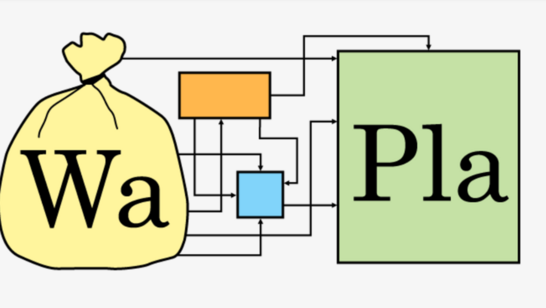Integrated Solid Waste Management in African cities for enhanced emission reduction
Cooperating countries: Egypt, Uganda, Sambia and Austria
Coordinating institution: Technical University of Vienna
Partner institution: Cairo University, Makerere University, University of Zambia
Project duration: 01.11.2020 - 31.10.2023
Budget: € 34.360,00
Project summary
Globally about 2,000 Million tons of Municipal Solid Waste MSW are generated annually. Whereas in the past, high-income countries were responsible for the largest share of the overall waste generated, the continent with the highest projected growth in waste generation in the next decades however, represents Africa. It is estimated that the overall generation of Municipal Solid Waste in Africa will increase from currently 170 Million tons/year to 500 Million tons in 2050 (increase by factor 3). Improper management of MSW in Africa is associated with severe environmental problems (e.g., waste littering, open burning and emission of toxic gases such as dioxins, pollution of the ground and surface waters by waste disposal, significant emissions of greenhouses by dumping and landfilling as a result of anaerobic waste degradation). The recycling of municipal solid waste is practiced only to some extent, but largely left for the informal sector, which is doing an important job with respect to resource conservation.
The reasons for the improper management of MSW in African cities are manifold, ranging from limited financial resources, missing environmental awareness of the population, missing policy and legislation as well as its weak enforcement, limited knowhow in waste management in general, waste composition and waste related processes in particular. The latter is strongly related to the fact that universities or other educational institutions in Africa hardly provide any education or training in solid waste management.
Hence, the overall aim of the project was to generate a joint knowledge base for waste management between the partner institutions, in order to enhance environmental education and research in the African partner institutions. Special focus thereby was given to three relevant topics, which have been jointly defined in the first project meetings:
- Evaluation of waste management systems via Material Flow Analysis and Life Cycle Assessment
- Waste Characterization practices in Austria, Egypt, Uganda and Sambia
- Bio-waste management
For the evaluation of waste management systems, the software WaPla (Waste Management Planning Tool) developed by TU Wien was adapted for African cities and then distributed among the partner institutions. Furthermore, trainings for the application of this software have been conducted, so that the tool can be applied in teaching and research at the African partner institutions.
For the topic waste characterization, the practice and standards applied to determine the quantities and composition of municipal solid waste in the different countries have been jointly discussed. The results of this discussion were presented in a workshop at the international Waste Symposium in Sardinia in October 2023. Moreover, a joint publication on waste characterization in different parts of the world is currently elaborated. Thereby the regional focus is extended to Asian and Latin American countries, as a) a large interest on a joint publication was expressed by the workshop participants in Sardinia and b) cities in Asia and Latin America face similar challenges when it comes to waste characterization as cities in Africa.
For bio-waste management in Africa, current challenges regarding the treatment and utilization of bio-waste have been jointly discussed. A literature review on typical pollutant in bio-waste has been elaborated and is currently under review for publication. Moreover, PowerPoint presentations on proper bio-waste management (for teaching) have been produced by the project partners.

